15% off £30 OR 20% off £40
Almonds
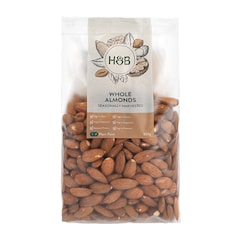
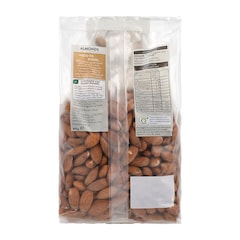
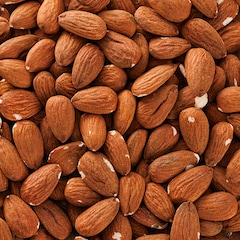
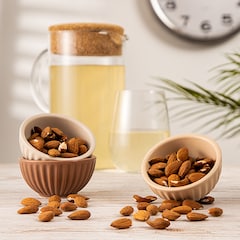
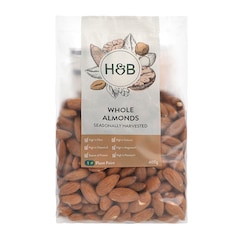
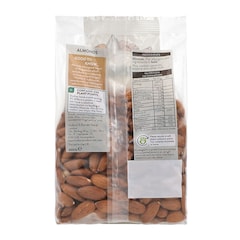
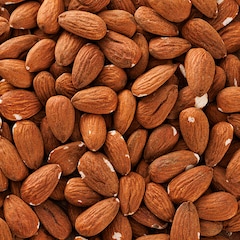
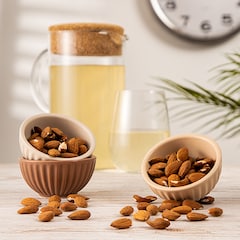

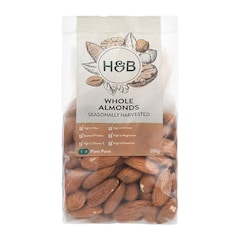
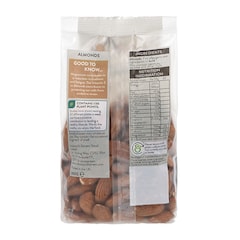
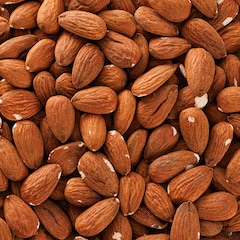
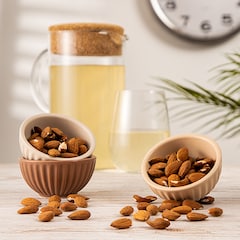

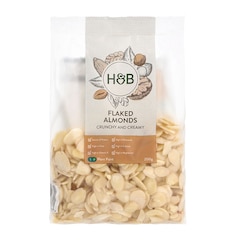
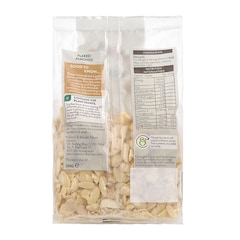
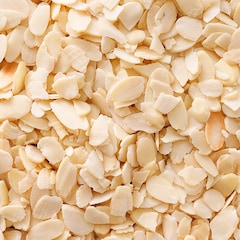
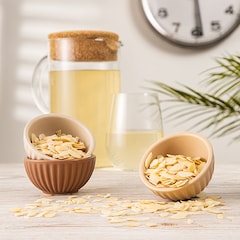

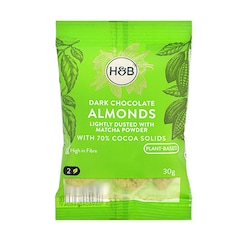
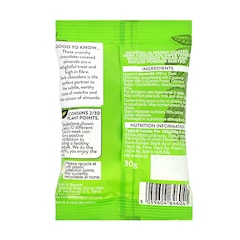
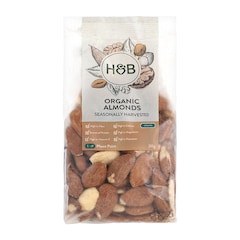
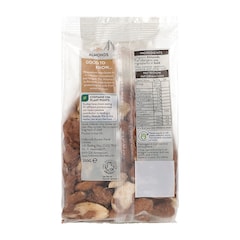
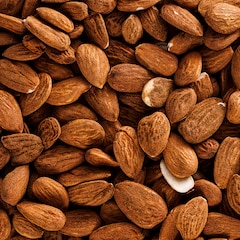
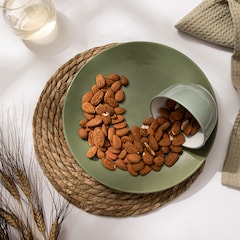

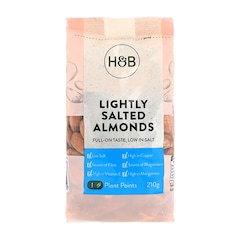
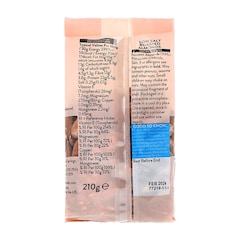
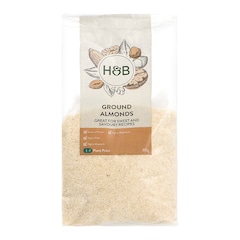
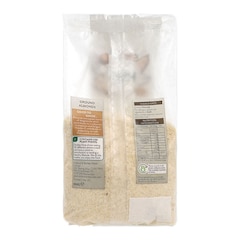
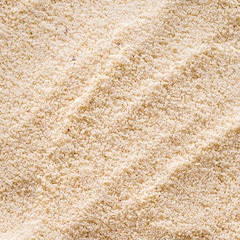

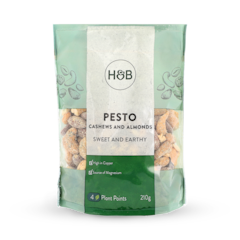
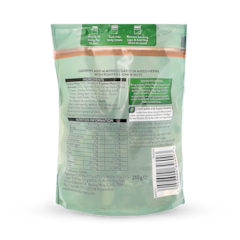
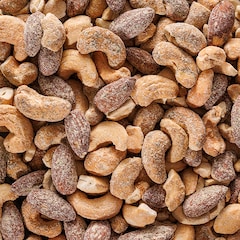
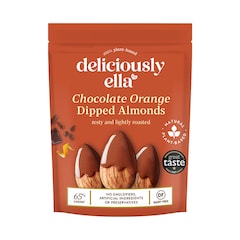
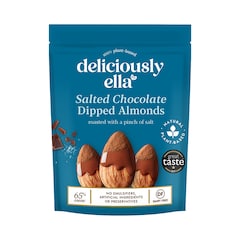
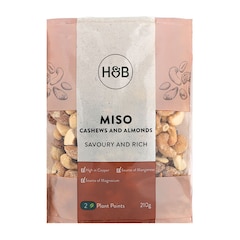
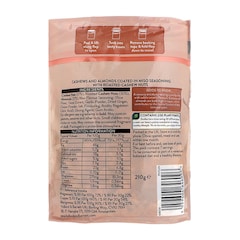
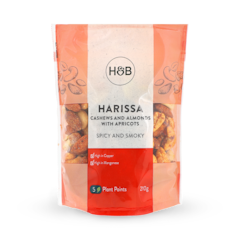
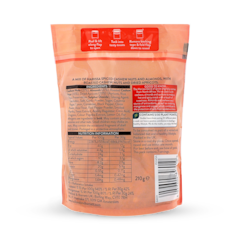
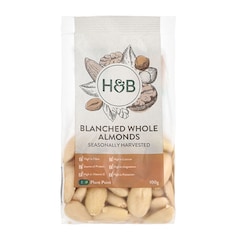
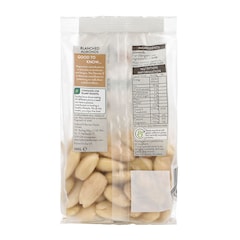
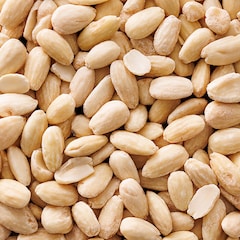
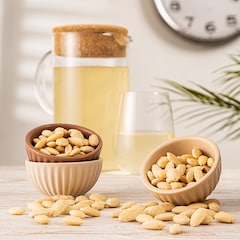

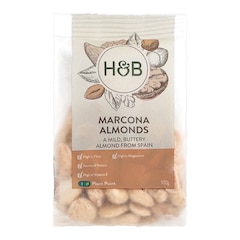
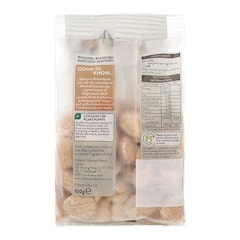
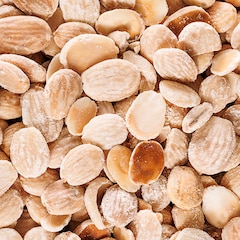

Shop Almonds at Holland & Barrett
Almonds are a popular variety of nut which come from the almond species of tree, native to Iran and its surrounding countries.
Although we often refer to almonds as nuts, they are in fact edible seeds of the almond tree, rather than true nuts. They grow with shells on, which are removed before eating.
Almonds: perfect for snacking, baking and cooking
You can buy whole almonds for snacking; flaked almonds to add to cereals, porridge and overnight oats, and ground almonds for use in baking.
Ground almonds can be added to cakes, puddings and tarts for extra flavour and to thicken sauces.
Almonds are super versatile – they can be used in countless recipes for both savoury and sweet food, thanks to their delicate flavour.
What are the nutritional benefits of almonds?
Almonds have plenty of nutrients, making them one of the most beneficial varieties of nut.
Rich in antioxidants
These delicious nuts are rich in antioxidants which help to prevent damage to the body from free radicals.
Full of good fats
Almonds, like most other nuts, are also high in fat – but what we prefer to think of as good fats! The monounsaturated fat contained in them helps your body to maintain levels of cholesterol.
A great source of Vitamin E
Almonds are one of the best food sources of Vitamin E, which is important for maintaining healthy skin and normal vision as well as for supporting your immune system, your body’s natural defence against infections and illnesses.
As well as Vitamin E, fats and antioxidants, almonds are also high in fibre and magnesium and are a source of protein. They really are super little nuts!
Why is protein so important?
Like most varieties of nut, almonds are an important source of protein.
Every ounce of almonds provides 6 grams of protein, one eighth of your recommended daily protein intake.
Protein is a really important part of our diets as the body uses it to help build and repair tissues. So almonds are a useful snack if you have a busy lifestyle and are always on the go.
Fibre, which almonds are also rich in, help to keep you feeling fuller for longer, so almonds make for a perfect snack for in between meals when you’re feeling peckish.
Eating foods rich in fibre like almonds can help aid digestion by contributing to normal bowel function and prevent constipation.
A sweet treat
Almonds have a lovely buttery sweet taste and they can be added to plain yogurt to give it more flavour, as well as added to savoury dishes like curries and salads.
If you’ve got a sweet tooth, or just fancy a bit more of a treat, then chocolate covered almonds are for you!
These are whole almonds coated in creamy smooth milk chocolate, perfect for sharing, or keeping to yourself if you’d prefer!
There are even Vegan Organic Chocolate Coated Almonds too!
If you’re not a massive fan of chocolate, why not try Yogurt Flavour Coated Almonds instead, a alternative to chocolate? These are made with natural ingredients and importantly, don’t contain any artificial colours, flavours or hydrogenated fats.
Other uses for almonds
If you are feeling adventurous, you can use raw almonds to make your own almond milk alternative drink or almond butter.
These are both quite simple to create and are a healthy and tasty alternatives to cow’s milk and peanut butter.
Make your own almond milk-alternative drink
To make almond milk-alternative drink, simply soak your almonds overnight in water. You can soak them for up to two days - the longer you soak them, the creamier the drink will be.
Then simply rinse the almonds before adding them to a blender, along with some cold water, blending them until smooth.
Pour this mixture into a muslin lined sieve lined, over a jug and let it drip through before squeezing the last of it out. And there you have it – your very own homemade almond drink!
Make your own almond butter
To make almond butter, start by roasting your almonds on a baking tray in the oven for 10 minutes.
Once they are cool, pop them in a blender and blend for 12 minutes. Once smooth, add a drizzle of honey to taste and you have home-made, tasty almond butter to spread on your toast.
Shop Almonds at Holland & Barrett
Almonds are a popular variety of nut which come from the almond species of tree, native to Iran and its surrounding countries.
Although we often refer to almonds as nuts, they are in fact edible seeds of the almond tree, rather than true nuts. They grow with shells on, which are removed before eating.
Almonds: perfect for snacking, baking and cooking
You can buy whole almonds for snacking; flaked almonds to add to cereals, porridge and overnight oats, and ground almonds for use in baking.
Ground almonds can be added to cakes, puddings and tarts for extra flavour and to thicken sauces.
Almonds are super versatile – they can be used in countless recipes for both savoury and sweet food, thanks to their delicate flavour.
What are the nutritional benefits of almonds?
Almonds have plenty of nutrients, making them one of the most beneficial varieties of nut.
Rich in antioxidants
These delicious nuts are rich in antioxidants which help to prevent damage to the body from free radicals.
Full of good fats
Almonds, like most other nuts, are also high in fat – but what we prefer to think of as good fats! The monounsaturated fat contained in them helps your body to maintain levels of cholesterol.
A great source of Vitamin E
Almonds are one of the best food sources of Vitamin E, which is important for maintaining healthy skin and normal vision as well as for supporting your immune system, your body’s natural defence against infections and illnesses.
As well as Vitamin E, fats and antioxidants, almonds are also high in fibre and magnesium and are a source of protein. They really are super little nuts!
Why is protein so important?
Like most varieties of nut, almonds are an important source of protein.
Every ounce of almonds provides 6 grams of protein, one eighth of your recommended daily protein intake.
Protein is a really important part of our diets as the body uses it to help build and repair tissues. So almonds are a useful snack if you have a busy lifestyle and are always on the go.
Fibre, which almonds are also rich in, help to keep you feeling fuller for longer, so almonds make for a perfect snack for in between meals when you’re feeling peckish.
Eating foods rich in fibre like almonds can help aid digestion by contributing to normal bowel function and prevent constipation.
A sweet treat
Almonds have a lovely buttery sweet taste and they can be added to plain yogurt to give it more flavour, as well as added to savoury dishes like curries and salads.
If you’ve got a sweet tooth, or just fancy a bit more of a treat, then chocolate covered almonds are for you!
These are whole almonds coated in creamy smooth milk chocolate, perfect for sharing, or keeping to yourself if you’d prefer!
There are even Vegan Organic Chocolate Coated Almonds too!
If you’re not a massive fan of chocolate, why not try Yogurt Flavour Coated Almonds instead, a alternative to chocolate? These are made with natural ingredients and importantly, don’t contain any artificial colours, flavours or hydrogenated fats.
Other uses for almonds
If you are feeling adventurous, you can use raw almonds to make your own almond milk alternative drink or almond butter.
These are both quite simple to create and are a healthy and tasty alternatives to cow’s milk and peanut butter.
Make your own almond milk-alternative drink
To make almond milk-alternative drink, simply soak your almonds overnight in water. You can soak them for up to two days - the longer you soak them, the creamier the drink will be.
Then simply rinse the almonds before adding them to a blender, along with some cold water, blending them until smooth.
Pour this mixture into a muslin lined sieve lined, over a jug and let it drip through before squeezing the last of it out. And there you have it – your very own homemade almond drink!
Make your own almond butter
To make almond butter, start by roasting your almonds on a baking tray in the oven for 10 minutes.
Once they are cool, pop them in a blender and blend for 12 minutes. Once smooth, add a drizzle of honey to taste and you have home-made, tasty almond butter to spread on your toast.
















